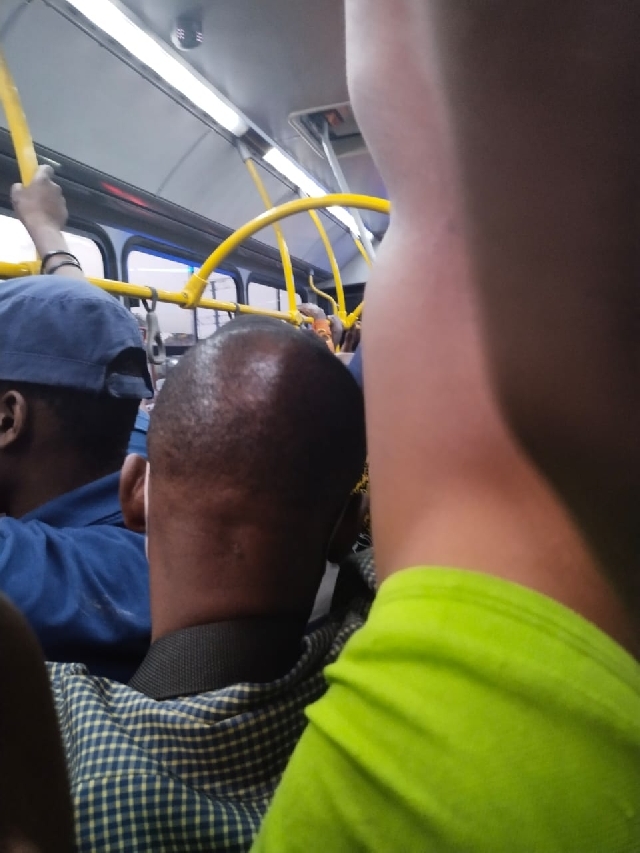Multi-million dollar Aayalolo BRT faces criticism over overloading and deteriorating service quality
 Overlaoding Aayalolo BRT
Overlaoding Aayalolo BRT
The much-celebrated Aayalolo Bus System, officially known as the Quality Bus System (QBS), is facing a barrage of complaints from passengers over deteriorating service conditions, overloading, and a worrying departure from its original purpose under the Greater Accra Passenger Transport Executive (GAPTE) initiative.
Originally launched as a modern, efficient urban transport solution under the World Bank-supported Bus Rapid Transit (BRT) project, Aayalolo was meant to offer a reliable alternative to the city’s often chaotic commercial transport sector.
However, users say the system has lost its way, now mirroring the very “trotro” culture it sought to reform.
At the CMB terminal in Accra’s Central Business District, several commuters voiced frustration about the state of the Aayalolo buses, particularly along the Accra–Achimota–Ofankor–Amasaman corridor.
According to them, rampant overloading has become the norm, with safety guidelines routinely ignored by drivers and conductors.
“Each bus is supposed to take 40 seated passengers and only nine standing,” said one commuter.
“But every day, they pack in far more than that. It’s like the drivers are just focused on making more money, not our safety.”
Sources within GAPTE have confirmed that many of the buses have exceeded their optimal lifespan, with limited funding to replace ageing units.
A senior management official, speaking anonymously, admitted that the buses are suffering from wear and tear, worsened by consistent overuse and poor maintenance.
“Many of our buses have expired,” the source disclosed. “We’ve been unable to secure funding to replace them, and it's affecting the quality of service.”
Commuters also pointed to the gradual breakdown of features that once set Aayalolo apart from regular commercial buses.
The once-functional USB charging ports under the seats are no longer operational, and the onboard Wi-Fi service has been completely disabled.
Air conditioning systems in many of the buses have also broken down, further diminishing the comfort promised by the system at launch.
The situation has raised concerns about the sustainability of the BRT model in Ghana, as GAPTE struggles to maintain its fleet and adhere to international standards for safe and efficient urban transportation.
More anon!
Source: Classfmonline.com/Cecil Mensah
Trending News

This is a party that has been tagged tribal; we cannot perpetuate it - Kufuor to NPP
14:16
Otumfuo Osei Tutu II Foundation awards nursing scholarships to 48 brilliant but needy students in Birim North
11:34
Marijuana use dramatically increases risk of dying from heart attacks and stroke, large study finds
15:19
W/R: Police arrest five suspects for robbery at Dompim
07:54
Tensions erupt over NADMO appointment in Kwahu Afram Plains North
14:10
Ghana seeks international support in fight against galamsey-Dept. Minister reveals
11:08
Gap to fill is presidential primary, not polling station: Miracles Aboagye to critics of early congress
15:09
Boakye Agyarko slams NPP leadership over “reckless” election timetable
07:48
OSP arrests top former GRA, SML, PPA officials over suspected corruption in revenue assurance contracts
14:00
E/R: Three dead, several injured in fatal accident at Asuboi on Accra-Kumasi Highway
10:47




